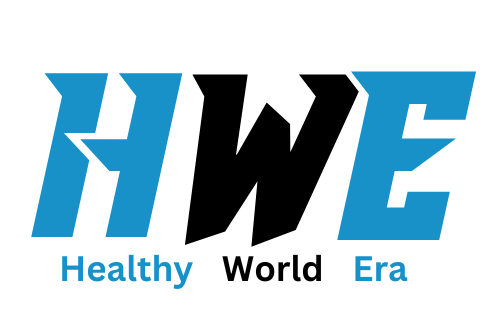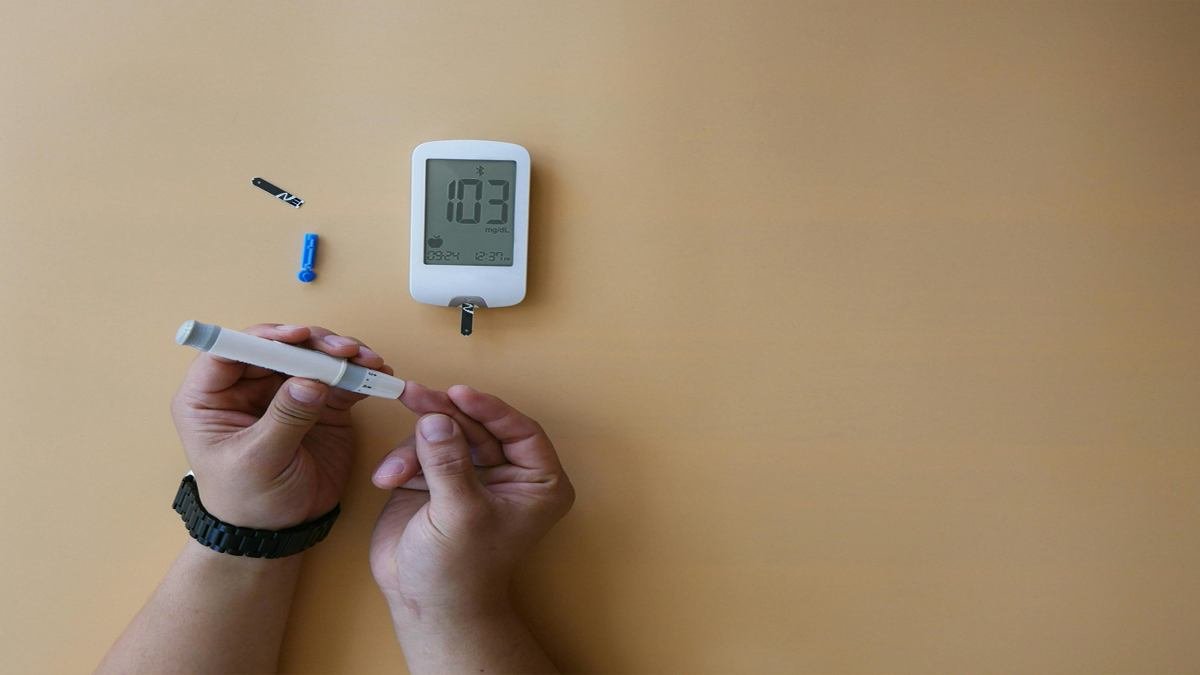Overview
Hypoglycemia, or low blood sugar, occurs when the body’s blood glucose levels drop below the normal range, leading to symptoms that can range from mild discomfort to serious complications.
Blood glucose is the body’s main source of energy, especially for the brain, which relies heavily on a steady supply to function.
Hypoglycemia can affect anyone but is particularly common among people with diabetes, especially those who use insulin or other blood-sugar-lowering medications.
Left untreated, hypoglycemia can become life-threatening, making it crucial to understand its causes, symptoms, and preventive strategies.
This blog explores hypoglycemia in detail, covering its symptoms, causes, risk factors, diagnosis, treatment, and prevention strategies to help you better understand and manage this condition.
Table of Contents
What is Hypoglycemia?
Hypoglycemia occurs when blood glucose levels fall below the normal range, generally defined as less than 70 mg/dL (3.9 mmol/L) in adults.
The condition can vary in severity, from mild cases that can be easily treated with a small amount of glucose to severe hypoglycemia, which can cause confusion, seizures, loss of consciousness, and, if left untreated, can lead to coma or death.
In people without diabetes, hypoglycemia is rare, as the body has complex mechanisms to maintain blood sugar within a narrow range.
However, for those with diabetes or certain metabolic disorders, the body may struggle to regulate blood sugar, leading to episodes of hypoglycemia.
Symptoms of Hypoglycemia
Hypoglycemia symptoms can vary depending on the severity of the blood sugar drop. They are generally divided into mild, moderate, and severe symptoms.
Mild to Moderate Symptoms:
When blood sugar levels start to drop, the body releases stress hormones, like adrenaline, which causes early warning signs:
- Shakiness or tremors
- Sweating
- Rapid heartbeat or palpitations
- Hunger
- Anxiety or nervousness
- Irritability or mood swings
- Fatigue or weakness
- Dizziness or lightheadedness
- Headache
Severe Symptoms:
If blood sugar levels continue to drop and are not corrected, the brain begins to suffer from a lack of glucose, which can lead to more severe neurological symptoms:
- Confusion or difficulty concentrating
- Blurry vision
- Slurred speech
- Clumsiness or difficulty walking
- Seizures
- Loss of consciousness
It’s crucial to treat hypoglycemia as soon as symptoms arise to prevent severe complications, as the brain and body both require glucose to function properly.
Causes of Hypoglycemia
Several factors can cause hypoglycemia, with diabetes management being one of the most common contributors. However, non-diabetic individuals may also experience low blood sugar under certain conditions.
1. Medication-Induced Hypoglycemia
- Diabetes medications: Insulin and some oral diabetes drugs, like sulfonylureas, are common causes. They work to lower blood sugar levels, but incorrect dosing or taking these medications without adequate food can lead to hypoglycemia.
- Non-diabetes medications: Certain medications, such as beta-blockers, antibiotics, or even aspirin in high doses, may lower blood sugar levels in susceptible individuals.
2. Excessive Alcohol Consumption
- Alcohol can impair the liver’s ability to release glucose into the bloodstream, particularly if consumed in large amounts or on an empty stomach. This can cause hypoglycemia hours after drinking.
3. Prolonged Fasting or Skipping Meals
- Going long periods without eating can deplete the body’s glucose reserves, particularly for those whose bodies don’t regulate blood sugar well. Skipping meals or eating too little can easily trigger hypoglycemia in some individuals.
4. Over-Exercising
- Exercise consumes glucose for energy. If you engage in intense exercise without adjusting your carbohydrate intake or medication, you risk experiencing hypoglycemia during or after physical activity.
5. Medical Conditions
- Hormonal imbalances: Conditions like adrenal insufficiency and certain thyroid disorders can affect blood sugar levels.
- Insulinomas: These are rare tumors in the pancreas that secrete insulin, causing blood glucose levels to drop.
- Kidney disease: Impaired kidney function can interfere with the body’s ability to regulate blood sugar.
6. Reactive Hypoglycemia
- Some individuals experience hypoglycemia within hours after eating due to an overproduction of insulin. Known as reactive hypoglycemia, this condition typically occurs in people without diabetes.
Risk Factors for Hypoglycemia
While hypoglycemia can occur in anyone, certain factors increase the risk:
- Type 1 or Type 2 Diabetes: Especially if insulin or blood-sugar-lowering medications are involved.
- Frequent Alcohol Consumption: Drinking excessively without food increases the risk.
- Certain Medications: Such as diabetes medications, beta-blockers, or other drugs that affect glucose levels.
- Hormonal Deficiencies: Conditions affecting cortisol or other hormones.
- Metabolic Disorders: Such as glycogen storage disease or pancreatic tumors.
- Poor Eating Habits: Skipping meals or eating low-carbohydrate diets can increase the likelihood of hypoglycemia.
Complications of Hypoglycemia
If untreated, hypoglycemia (low blood sugar) can lead to severe and immediate complications. These include:
- Cognitive Impairment: Low blood sugar deprives the brain of energy, leading to confusion, poor coordination, blurred vision, and difficulty concentrating. Severe hypoglycemia can cause unconsciousness.
- Seizures: Very low blood sugar levels can trigger seizures due to sudden and abnormal electrical activity in the brain.
- Loss of Consciousness: Extremely low blood sugar may cause fainting, leading to dangerous situations, especially if the individual is driving or operating machinery.
- Increased Risk of Falls and Injury: Symptoms like dizziness, shaking, and confusion increase the risk of accidents and falls, especially in older adults.
- Cardiovascular Strain: Repeated episodes of hypoglycemia can put stress on the heart, increasing the risk of heart arrhythmias and other heart-related complications.
To prevent these complications, it’s crucial to monitor blood sugar levels regularly, maintain a balanced diet, and respond quickly to early symptoms of hypoglycemia.
Diagnosis of Hypoglycemia
A healthcare provider may perform several tests and evaluations to diagnose hypoglycemia:
- Medical History and Symptoms: Understanding the individual’s symptoms, lifestyle, and medications provides important clues.
- Blood Glucose Test: The most definitive diagnosis is made by measuring blood glucose levels during an episode. Levels below 70 mg/dL confirm hypoglycemia.
- Fasting Test: For individuals experiencing unexplained hypoglycemia, a supervised fasting test may help to identify the cause.
- Mixed-Meal Tolerance Test: This test can diagnose reactive hypoglycemia by evaluating the body’s response to food intake.
Treatment of Hypoglycemia
The goal of hypoglycemia treatment is to restore normal blood glucose levels quickly. The approach depends on the severity of the symptoms.
Immediate Action for Mild to Moderate Hypoglycemia:
1. Consume 15-20 grams of fast-acting carbohydrates: Simple carbs raise blood sugar quickly. Examples include:
- 4 oz (120 ml) of fruit juice
- 1 tablespoon of honey or sugar
- Glucose tablets or gel
2. Wait 15 Minutes: After consuming sugar, wait 15 minutes and recheck blood sugar levels.
3. Repeat if Necessary: If levels are still low, repeat with another 15-20 grams of carbohydrates.
Severe Hypoglycemia (Loss of Consciousness):
For severe hypoglycemia where the person is unable to eat or drink:
1. Glucagon injection: Administered by a trained person, glucagon helps release glucose from the liver, raising blood sugar quickly.
2. Emergency assistance: Call for medical help if a glucagon kit is not available or if the individual does not respond.
Prevention of Hypoglycemia
Prevention is the best way to manage hypoglycemia, especially for those at high risk.
- Eat Regularly: Consistent meals and snacks, especially those with balanced carbohydrates and protein, can help maintain blood sugar stability.
- Monitor Blood Sugar Levels: For those with diabetes, regularly checking blood glucose can help catch and address low levels early.
- Adjust Medication as Needed: Work with a healthcare provider to adjust medication doses, particularly if lifestyle changes affect blood sugar.
- Avoid Alcohol or Limit Intake: Avoid drinking on an empty stomach and be cautious with alcohol intake, particularly if using insulin.
- Plan for Physical Activity: If engaging in exercise, monitor blood sugar before and after, and adjust carb intake as needed.
- Educate Yourself: Knowing the symptoms and triggers can help you act quickly and prevent severe episodes.
Conclusion
Hypoglycemia is a potentially serious condition that requires careful management and prompt treatment.
Recognizing the symptoms, understanding the causes, and knowing how to treat low blood sugar is essential for preventing complications.
For individuals with diabetes, regular monitoring and a well-structured diet can help avoid episodes of hypoglycemia.
For those without diabetes, maintaining a balanced diet and monitoring blood sugar responses to certain activities and foods can be beneficial.
Managing hypoglycemia requires awareness, knowledge, and a proactive approach to ensure a balanced and healthy life.
FAQs
1. Can hypoglycemia occur in people without diabetes?
Yes, although it’s less common. Certain conditions, like reactive hypoglycemia, excessive alcohol intake, or hormonal imbalances, can cause low blood sugar in non-diabetic individuals.
2. How does hypoglycemia affect mental function?
Since the brain relies on glucose, low blood sugar levels can impair concentration, memory, and coordination. Severe hypoglycemia can cause confusion, seizures, and even coma if untreated.
3. What should I eat to raise blood sugar quickly?
Foods with fast-acting carbohydrates, like fruit juice, candies, glucose tablets, or honey, are effective for quickly raising blood sugar levels during mild to moderate hypoglycemia.
4. How is hypoglycemia different from hyperglycemia?
Hypoglycemia is low blood sugar, while hyperglycemia refers to high blood sugar. Both conditions can be dangerous if not properly managed.
5. Can stress lead to hypoglycemia?
In some cases, stress may trigger hypoglycemia by affecting hormone levels and how the body processes blood sugar, especially in people prone to blood sugar fluctuations.

